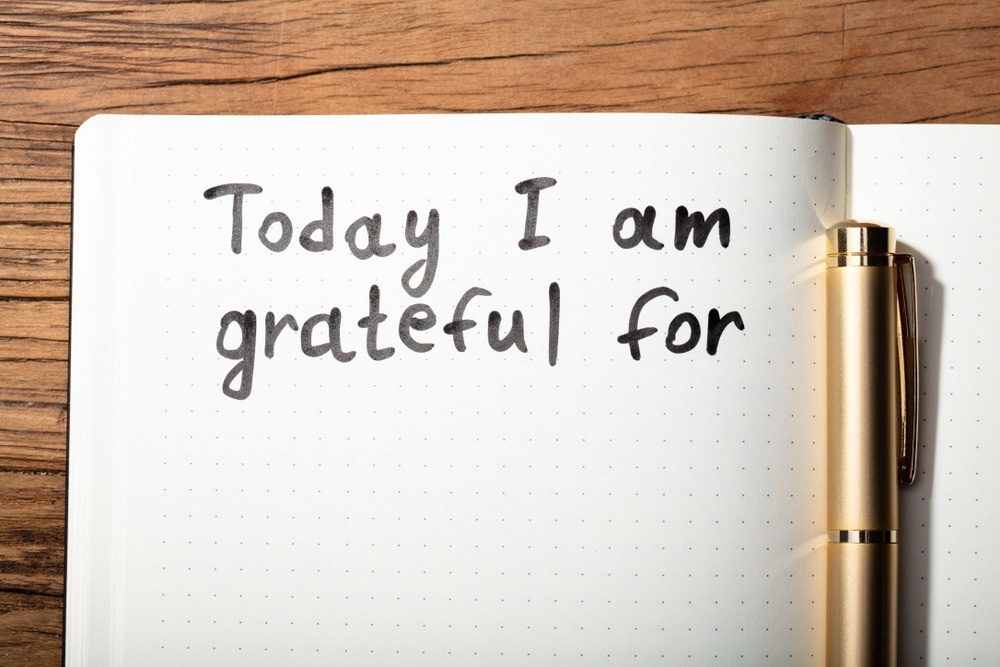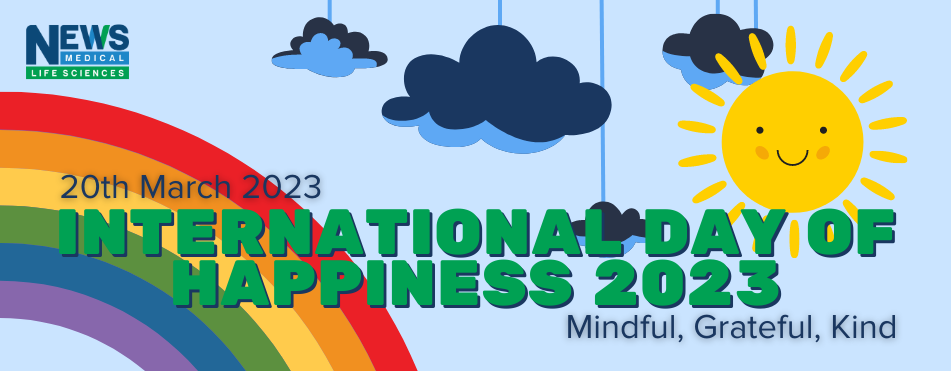What is gratitude?
Overcoming the human negativity bias
Can we rewire the brain to be grateful?
The benefits of practicing gratefulness
References
Further reading
Grateful people have better physical and mental health, experience better relationships, and live longer, according to the mounting number of articles emerging online amid the gratitude self-help trend. But is it all true? Are we born with the propensity to look at life through a grateful lens?

Image Credit: Andrey_Popov/Shutterstock.com
What is gratitude?
Throughout the ages, around the globe, prominent figures, including philosophers and religious leaders, have hailed the benefits of gratitude, believing those with gratitude to be virtuous. Throughout history, gratitude has often been viewed as a type of social glue that strengthens ties between people, serving as the backbone of society.
People seem to have a deep-rooted understanding of what it means to be grateful, to feel thankful and appreciative, and to be motivated to return kindness to others. Scientists often disagree on the exact nature of gratitude, with their various definitions often falling into one of three buckets; firstly, that gratitude is an “affective trait” - a tendency towards gratefulness, others believe it is more of a mood, and others see it more as an emotion.

Regardless of how it is defined, we know that humans can be grateful or less grateful in certain situations, and some people tend to be more grateful overall than others. The question is, does it come naturally to humans to feel grateful, or do we need to work on it?
Overcoming the human negativity bias
Many studies have been undertaken in psychology, neuroscience, and biology to understand what it means to be human. From this research, we understand that the human brain has evolved what’s known as a ‘negativity bias.’ This bias is believed to be an adaptive evolutionary function, which served an important purpose millennia ago when our ancestors had to manage immediate life or death threats to ensure survival effectively. In an environment full of predators, competitors, and harsh conditions, it is believed that the human brain evolved to more readily recognize and process stimuli that played a role in survival. Most often, this stimuli was threatening, and as a result, the human mind developed a bias to see negative information as more salient.
Scientists theorize that this bias still plays a role in modern humanity. Babies, for instance, rely on this bias to quickly learn to avoid harmful stimuli. In adults, however, the negativity bias seems to work against us in the modern world.
We now live in relatively safe and predictable societies compared to those that early humans experienced. The negativity bias we developed to keep us alive is still at work, even in the absence of immediate threats. Instead of helping us react quickly to potentially harmful stimuli, it prioritizes negative information over neutral or positive information. This is why, for example, it is easier for us to recall insults than praise.
Can we rewire the brain to be grateful?
Thankfully, the existence of gratefulness shows that we have hope in overcoming our negative bias. Time and time again, science has proven that the brain is plastic, and with cognitive effort, we can rewire it to move away from natural tendencies and ingrained thinking patterns.
Kiss your brain: The science of gratitude | Christina Costa | TEDxUofM
To experience gratitude, it is important to pay attention to positive information and to give it importance. While we may do this naturally in many circumstances, such as when someone gives us a gift, day-to-day life often involves a focused effort to guide our brain toward positive information and stop it from giving unbalanced attention to negative information. Mindfulness practices and meditation are commonly used techniques to help reset the balance and move away from cognitive bias.
The benefits of practicing gratefulness
According to science, the effort to practice gratefulness can have huge payoffs. Studies have associated gratitude with a number of benefits to physical and mental health. In particular, those who regularly express gratitude can hope to sleep better, have an improved mood and have a boosted immune system.

Image Credit: fizkes/Shutterstock.com
According to a 2012 study, people who express gratitude experience fewer aches and pains and also report feeling healthier than those who don’t. They are also more likely to look after their health.
In addition, studies have shown the benefits of gratitude on psychological health. World-renowned gratitude researchers Robert A. Emmons, Ph.D., has conducted numerous studies that have shown the relationship between gratitude and feelings of happiness. He has also found that gratitude is linked to lower depression. Other studies have found that gratitude may also lower anxiety and help people to deal with adversity and build strong relationships. There have also been studies that have shown gratitude to enhance empathy and lower aggression.
These studies have been further backed up by neuroscientific research, which has revealed that the expression of gratitude can increase the levels of the brain’s feel-good chemicals, such as dopamine, oxytocin, and serotonin. These neurochemicals are associated with feelings of connection, closeness, and happiness.
Overall, science has shown us that gratitude can help us lead a healthier life. Still, we will likely have to work on overcoming a natural cognitive bias to unlock its full potential.
References
- Bartlett, M. Y., Condon, P., Cruz, J., Baumann, J., & Deste- no, D. (2012) “Gratitude: Prompting behaviours that build relationships.,” Cognition & Emotion, 26(1), 2–13. https://doi.org/10.1080/02699931.2011.561297
- Disabato, D. J., Kashdan, T. B., Short, J. L., & Jarden, A. (2017) “What Predicts Positive Life Events that Influence the Course of Depression? A Longitudinal Examination of Gratitude and Meaning in Life.,” Cognitive Therapy and Research, 41(3), 444–458. https://doi.org/10.1007/s10608-016-9785-x
- Emmons, R.A. and McCullough, M.E. (2003) “Counting blessings versus burdens: An experimental investigation of gratitude and subjective well-being in daily life.,” Journal of Personality and Social Psychology, 84(2), pp. 377–389. Available at: https://doi.org/10.1037/0022-3514.84.2.377.
- Emmons, R. A., & Stern, R. (2013) “Gratitude as a psycho- therapeutic intervention.,” Journal of Clinical Psychology, 69(8), 846–855. https://doi.org/10.1002/jclp.22020
- Vaish, A., Grossmann, T. and Woodward, A. (2008) “Not all emotions are created equal: The negativity bias in social-emotional development.,” Psychological Bulletin, 134(3), pp. 383–403. Available at: https://doi.org/10.1037/0033-2909.134.3.383.
Further Reading
Last Updated: Apr 7, 2023